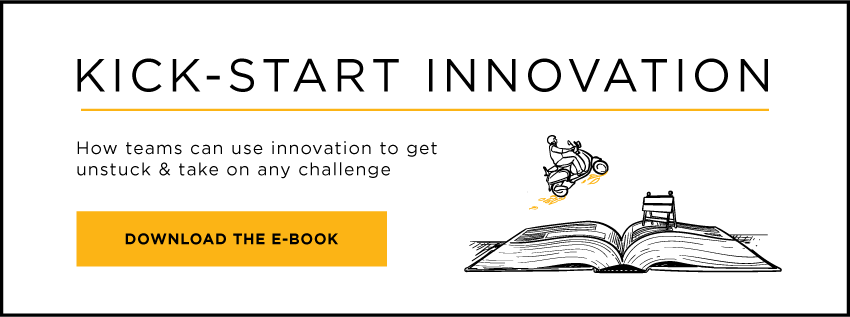The future of work will be led by innovators. Demand for better critical thinking skills, more agile management styles and the ability to inspire creativity is already forcing companies to rethink their hiring and training programs for the next generation of executives.
Most large companies have a history of sending high performers to mini MBAs and leadership training programs to bolster their skills, and that’s likely to continue in the coming years. A study by Chief Learning Officer magazine found 92 percent of learning organizations either plan to increase their spending on executive education for rising leaders or keep it the same in the coming year. This spending aligns with the majority (60%) of mid-career professionals who say they are very or extremely likely to pursue a master’s degree in management, according to data from the Association to Advance Collegiate Schools of Business.
Many of these professionals will pursue specialized degrees, including design thinking, which has become a popular topic in business schools around the world. Over the past few years, universities have been integrating design thinking into their core business curriculum, through executive MBA courses, seminars, workshops and certificate programs.
By adding these courses to the mix, these universities are validating the value of design thinking to drive innovation in the workplace. These programs promise to provide mid-career leaders with the tools to help them use design thinking on innovative projects and in day-to-day engagements in order to inspire creativity and drive more value by integrating customer feedback into the design process.
Companies that want their future leaders to have the tools to thrive and innovate in an uncertain and agile future, may want to consider sending them to one of these (online or face-to-face) options:
-
Massachusetts Institute of Technology in Boston offers an online Mastering Design Thinking certificate program through its executive MBA program. It is appropriate for individuals and teams who want to incorporate design thinking into their leadership style and organizational culture. The lessons are delivered via video lectures, group projects and individual assignments.
-
Stanford University in California offers a series of design thinking courses for individuals and teams through its school of professional development. These include the Innovation and Entrepreneurship program for professional or graduate certificate, Innovation at Work online course for teams and REV (Refine, Evolve, Validate) – online training for individuals.
-
Darden University in Virginia offers an Innovation and Design Experience course as part of its MBA program, which examines how design thinking and innovation principles can be used to enhance the value and accelerate the development of business.
-
Imperial College Business School in London now offers an eight-week design thinking module as part of its MBA program. It promises to help students overcome business challenges and make the most of new opportunities through new approaches to problem solving.
-
Aalto University in Finland offers a seven-day design thinking for business innovation module in its executive MBA program — offered in Helsinki and Barcelona. The course promises to teach attendees how to quantify value propositions, develop prototypes, capture insights and execute agile strategies.
-
California College of the Arts offers a full MBA in Design Strategy (DMBA) that offers a design-thinking perspective on business and value creation. The program promises to “unite design, management, technology, and generative leadership into a holistic framework for total value creation.”
-
Northwestern’s Kellogg School of Management in Chicago now offers a dual master’s degree in Business and Design Innovation. The program builds on the foundation of Kellogg’s MBA program, adding courses on design thinking, innovation, analytics, and product management. Students graduate with an MBA from Kellogg and an MS from Northwestern Engineering.
These programs will require some time and financial investment, but the skill is a competitive advantage for any leader navigating today’s disruptive business landscape. When companies provide their rising leaders with core design thinking skills, they create a foundation for innovation that will make it easier to compete as an organization in the years to come.
Learn how to enable innovation skill-building at scale here or download our free ebook Kickstart Innovation: A Guide for Organizations.
